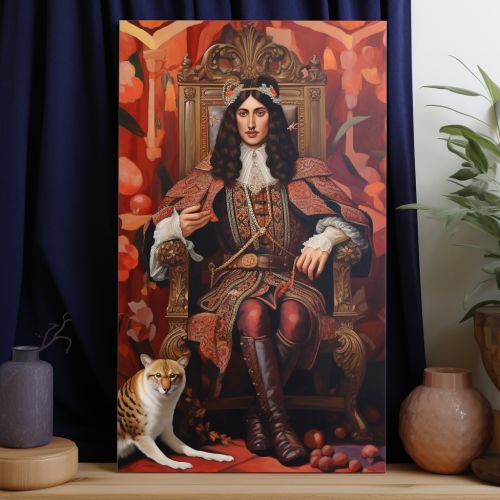Charles II of England
Early Life
Charles II was born at St. James's Palace in London on 29 May 1630. His parents were Charles I, who ruled the three kingdoms of England, Scotland, and Ireland, and Henrietta Maria, the sister of the French king Louis XIII. Charles was their second child. Their first son was Charles James, Duke of Cornwall, who was born and died on the same day.
Reign of Charles I and Civil War
During the early years of Charles II's life, England, Scotland, and Ireland were embroiled in the English Civil War, a conflict that pitched supporters of the monarchy, known as Royalists or Cavaliers, against those who sought to limit the king's power, known as Parliamentarians or Roundheads. Charles I was a controversial figure, whose reign was marked by a struggle for power with the English Parliament.
Exile
Following the execution of Charles I in 1649, the monarchy was abolished and a Commonwealth was declared. Charles II, who was in exile in France at the time, was recognized as king by Scotland and some parts of Ireland, but he was unable to secure his throne in England. He spent the next nine years in exile in France, the Dutch Republic, and the Spanish Netherlands.
Restoration
The death of Oliver Cromwell in 1658 led to a period of political instability in England. In 1660, in what is known as the Restoration, Charles II was invited to return to England and restore the monarchy. His reign was marked by a number of major events, including the Great Plague of London in 1665, the Great Fire of London in 1666, and the Dutch War of 1672–1674.
Later Reign and Death
Charles II's later reign was marked by increasing opposition from Parliament. Despite this, he maintained a high degree of popularity with his subjects. Charles II died on 6 February 1685, after four days of sudden illness. He was succeeded by his brother James II.
Legacy
Charles II is often remembered as the "Merry Monarch", in reference to both the liveliness and hedonism of his court and the general relief at the return to normality after over a decade of rule by Oliver Cromwell and the Puritans. Charles's personality and affable manner endeared him to his subjects, and he remains a popular figure in British history.


